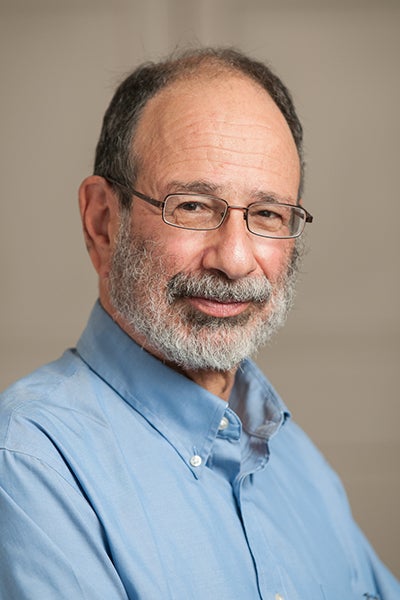|
February 14, 2014
Stanford economist suggests how to better allocate donor organs to increase their availability
The United States faces an all-time high waiting list for donor organs. Stanford Professor Alvin Roth, recipient of the 2012 Nobel Memorial Prize in Economic Sciences, suggests ways make organs, specifically kidneys, more available. 
Alvin Roth (Photo: Linda A. Cicero / Stanford News Service)
The clinical success of organ transplantation has resulted in a severe organ shortage. For example, there are currently almost 100,000 individuals in the United States on the waiting list for kidney transplantation. And despite efforts, the total number of deceased and living organ donations remains inadequate, and has resulted in all-time highs in wait times and wait list mortality rates.
At the annual meeting of the American Association for the Advancement of Science (AAAS), Alvin Roth, an economics professor at Stanford and co-recipient of the 2012 Nobel Memorial Prize in Economic Sciences, will discuss the rules that govern organ allocations, for both living and deceased donors, and potential ways to improve inefficiencies in the system.
Roth earned the Nobel Prize in part for his research in market design, which in turn led to improving the processes involved in long, non-directed donor chains in kidney exchanges. Often, an individual would like to donate a kidney to a loved one in need, but isn't a compatible donor. Donor chains are arrangements in which people in these situations are matched with other people in similar circumstances, where donors essentially trade a kidney for one that matches their intended recipient.
"The ability to construct long chains of transplants has become widespread, and chains account for a large proportion of the many thousands of life-years extended by kidney exchange to date in the United States," Roth said.
During his talk, titled "Allocating Donor Organs in Ways That Increase Their Availability," Roth will also detail the current legal atmosphere that controls how organs from deceased patients are donated. These donations are also occurring at a rate too slow to satisfy demand, he said.
There is another option often discussed for supplying organs to those in need, and that is to make it legal to buy and sell organs in some kind of market in which donors could be paid. "Why do we have laws against simply buying and selling kidneys?" Roth asks, pointing out that making markets illegal doesn't stop the business of illegal organ trade. "I don't know the answer, but I think it's a subject that needs more study." Roth points out that there are many "repugnant transactions" that some people would like to engage in but others think they should not, and that repugnance can change over time.
Roth will be available for questions during a news briefing on Friday, Feb. 14, at 1 p.m. CT at the AAAS newsroom on the second floor of the event center in the Swissôtel Chicago. He will also detail organ exchange networks during a symposium titled "Transplant Organ Shortage: Informing National Policies Using Management Sciences" on Friday, Feb. 14, from 10 a.m. to 11:30 a.m. CT, at the Hyatt Regency, Columbus Room IJ, in Chicago.
-30-
|